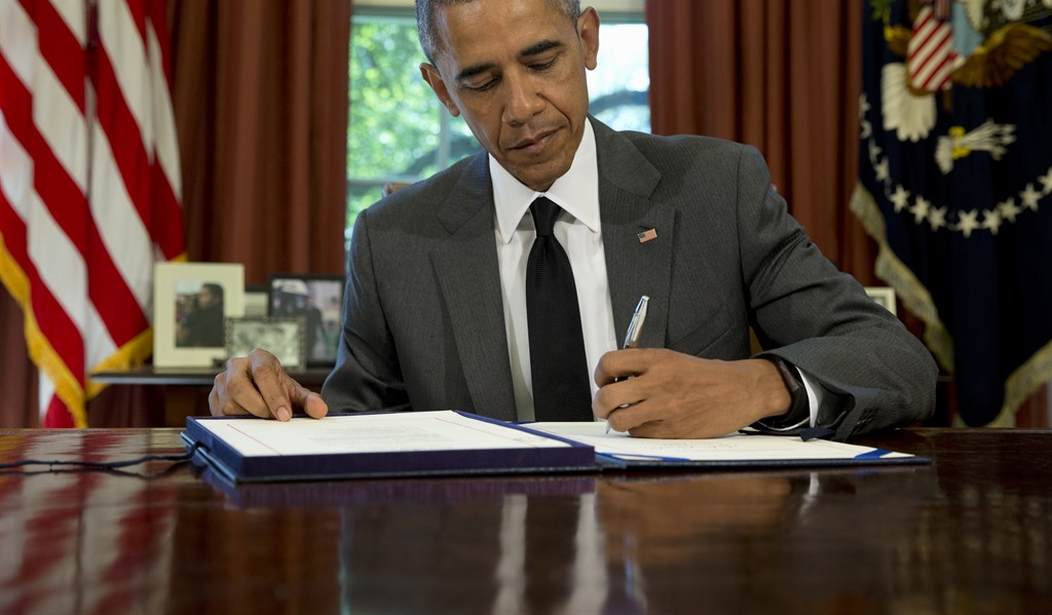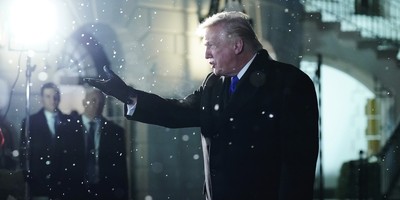WASHINGTON - Americans are increasingly pessimistic about their country's future. About the economy, first and foremost, but about a long list of other troubles, too.
Recent polls show that we have become a much less confident people, about the enormous problems that afflict our nation, our government and our less-than-civil society – and it's getting worse, much worse.
The Gallup Poll's Economic Confidence Index fell last month, deeply into minus territory and the "lowest monthly average since last October," the pollsters said Tuesday.
The index averaged +3 last January, but that was "the first time it was in positive territory since Gallup began tracking it daily in 2008," the public survey firm reported.
But its confidence measure fell sharply last month, as the stock market plunged, prices rose, wages remained flat, and economic growth slowed to a crawl.
Yes, I know that President Obama and his apologists have been telling us the economy is hunky-dory. But that's not what most Americans think.
"In July, 39 percent of Americans said the economy was 'getting better," while 56 percent said it was "getting worse," Gallup reported this week.
Since March, "Americans have grown increasingly negative about the economy's outlook," the pollsters said.
If you think that just lower income people were the most negative, you'd be wrong.
"Although upper-income Americans remain more positive than lower- and middle-income earners about the economy, the gap between the two groups narrowed in July as economic confidence among upper-income Americans was negative for the first time in 10 months," Gallup said.
Recommended
But the mediocre Obama economy (including jobs and wages) isn't the only thing that troubles Americans.
Our country's rapidly growing debt is also a major worry that continues to undermine our confidence.
The gross national debt, what the government borrows to pay its bills, including Social Security checks and other entitlements, is now over $18 trillion. That's the entire size of our economic output.
Federal, state and local government debts total $21.7 trillion.
We, meaning all taxpayers, are up to eyeballs in debt. And every year this debt continues to mushroom, faster than our economy is growing or our incomes are rising.
Last week, the Obama administration reported that the Gross Domestic Product – the broadest measurement of our nation's economic growth rate – was an unspectacular 2.3 percent in the second quarter.
This isn't widely known, but in crunching the numbers to arrive at the government's formula, the U.S. Department of Commerce "tweaked gross domestic product numbers going back several years," writes economic reporter Chico Harlan in the Washington Post.
"On balance, the revisions revealed a recovery that is more underwhelming than previously estimated, with [economic] growth averaging a 2 percent, rather than a 2.3 percent, annual pace since 2011," Harlan reported.
You didn't hear this on the nightly network news? I wonder why.
Those revisions by Obama's clever number crunchers transformed a 0.2 percent contraction in the first quarter to a 0.6 percent expansion.
These are pathetic growth rates, no matter how you tweak them, from which millions of Americans have been suffering since the Great Recession, and many who are still suffering.
Now we are in the midst of another two-year election cycle to choose a new leader to address our country's ills, restore the lost economic confidence that we had in the '80s and '90s by cutting tax rates across the broad to boost stronger economic growth and putting Americans back to work.
There will be a crowded platform Thursday night when the top GOP contenders will be asked what they plan to do first to fix our biggest problems if they become president.
A number of those who will be on the stage haven't a clue, judging from what they've been saying, or not saying, on the campaign trail.
Some of them were already running for president in the first year or two of their six year Senate term. That's why their older colleagues call them "freshmen."
They have a short resume, no accomplishments in the Senate, and virtually experience, but they think they're ready to run the government and the country and deal with a dangerous and troubled world.
Beware of these candidates. If the past seven years has taught us anything in choosing our presidents, it is that we should look to experienced, executive leaders with a well-thought out agenda to tackle the biggest problems facing our country today.
Leaders who have surrounded themselves with the best and brightest advisers on budget-cutting, growing the U.S. economy, and advancing a compelling foreign policy that commands the respect of our allies and adversaries alike.
Many of the would-be-presidential-candidates on the stage do not have a serious agenda, let alone a council of heavy weight advisers to deal with any of the monumental issues we face today.
And look for one more characteristic: Someone who has shown the ability to build a broad consensus in Congress and across the country for their agenda.
To do that, you need to get a majority of 535 men and women through persuasion, political alliances and public approval. No one likes a bully, braggart or egotist.
Most of all, look for a candidate with an innate sense of optimism and confidence about the future and a belief that our best days are still ahead of us.
Ronald Reagan had that in spades when he said our problems won't go away soon, but they will go away.

























Join the conversation as a VIP Member